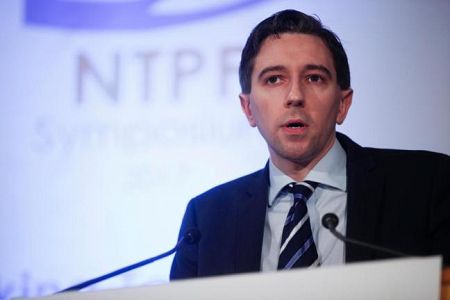Don't make disability an issue in abortion debate, says Irish health minister
Irish health minister Simon Harris has "warned" campaigners not to make non-fatal disability an issue during the referendum on the Eighth Amendment, the Times has reported. The health Minister, once pro-life, stated that he is “not ashamed" that he has changed his view on abortion. He has said that he “abhors” abortion for disability – however not all disabilities.
"The committee [considering the Eighth Amendment] did not recommend disability as a grounds for abortion nor do I think it should have, I would abhor that idea," Mr Harris said. "People may try to make this an issue during the campaign but it’s not grounds for an abortion. If you look at what the committee considered and what it accepted and rejected, the idea of abnormalities that are not fatal was not put in as a grounds for abortion."
Although the committee rejected the legalisation of abortion on grounds of "foetal abnormality" that would not lead to death before or shortly after birth, it recommended abortion up to birth for "fatal foetal abnormality," highlighting the prevalence of misleading terms in the abortion debate in Ireland. Precious Life, amongst other pro-life groups, campaign against the use of misleading terms such as “incompatible with life” and “fatal foetal abnormality” as being medically meaningless, wrong and deeply hurtful.
It is a known fact that the oireachtas committee set up to explore the eighth amendment to the Irish Constitution was deeply flawed and inherently biased especially with regards to disability. According to Martin McCaffery, a neonatologist and professor of paediatrics at the university of North Carolina, writing in the Irish Times, the committee did not hear "from one physician describing counselling in which parents are told that with continued care their anencephalic child would likely be born alive, have a meaningful if short life, and the child’s birth would reduce later maternal mental health challenges. No doctor testified that labelling infants with trisomy 18 as 'lethal' is inaccurate and steeped in disability bias."
The committee recommended abortion without restriction up to 12 weeks of pregnancy, and furthermore, up to birth on the grounds of the mother's mental health, both of which grounds could easily be used to target children with disabilities, the most vulnerable citizens in our society.
Director of Precious Life Bernadette Smyth commented, saying: “It is obvious that Ireland’s health minister is negating the reality that any change to our eighth amendment would, without doubt, lead to babies with disabilities being killed in the womb simply because of their disability. ‘Fatal foetal abnormality’ has never been a medical term, and most of these babies born with life-limiting conditions go on to live for weeks, months and years after birth, even with extremely poor initial diagnoses. What is being implied here is that babies, and others with severe disabilities are not worthy of life. We are all compatible with life and everyone has an inherent human right to be born. Abortion discriminates. In Ireland, we have a society which promotes true equality, compassion and human rights because we have a legal respect for life.”
Mr Harris, who previously described himself as pro-life, also told the Times that "I did completely change my mind on abortion. I don’t know why I had the initial view I had. I came into the Dáil at 24 years of age, never had kids and I just had a traditional view. Since becoming a TD and particularly since becoming health minister, the more I meet people and listen to their experiences I genuinely have had a radical change in my view on this. I am not ashamed to say that."


